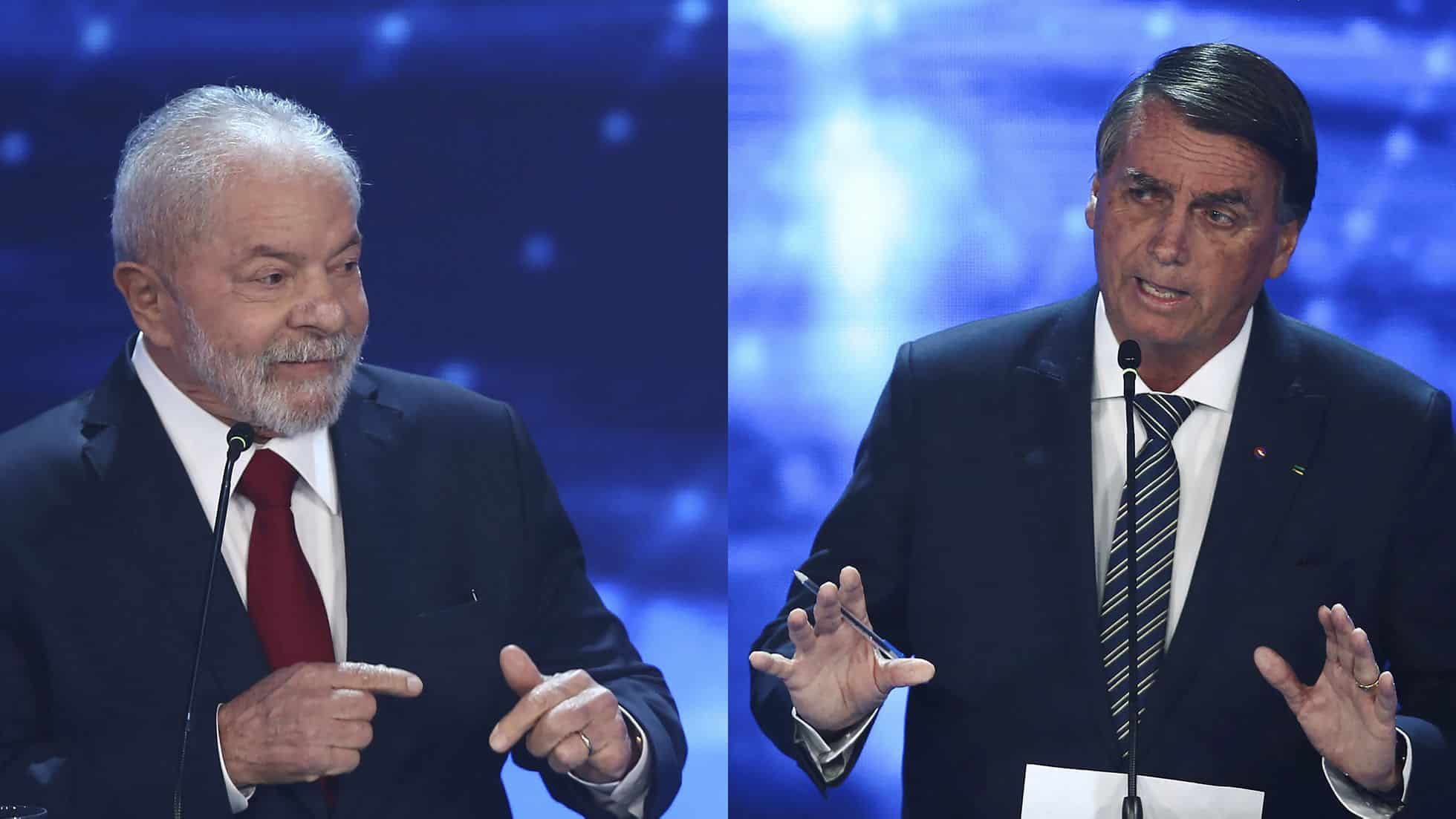
Brazilian presidential candidates Luiz Inácio Lula da Silva (left) and Jair Bolsanaro (right). Photo: Misión Verdad.

Orinoco Tribune – News and opinion pieces about Venezuela and beyond
From Venezuela and made by Venezuelan Chavistas

Brazilian presidential candidates Luiz Inácio Lula da Silva (left) and Jair Bolsanaro (right). Photo: Misión Verdad.
Former President Luiz Inácio Lula da Silva won the general elections that took place this Sunday, October 2, in Brazil, but the numbers did not give him enough to win in the first round. In total, he received 48.43% of the votes and will face the current president, Jair Bolsonaro—who received 43.2% of the votes, much more than the polls predicted—in a runoff election on October 30.
The votes of the Brazilian Democratic Movement (MDB), led by Simone Tebet, who came in third position (4.16%), and of Lula’s former minister, Ciro Gomes (3.04%), fourth place, will be decisive in defining who will be the next president of Brazil. It is expected to be a close election.
Brazil: A Presidential Election that Will Mark the Immediate Future of Latin America (Interview)
Beyond Lula’s victory in the first round, it was shown that Bolsonarism will be very much alive in Congress and the Senate, and will be strongly opposed if the Workers’ Party (PT) wins on October 30.
Other results:
Translation: Orinoco Tribune
OT/KW/SL

Misión Verdad is a Venezuelan investigative journalism website with a socialist perspective in defense of the Bolivarian Revolution